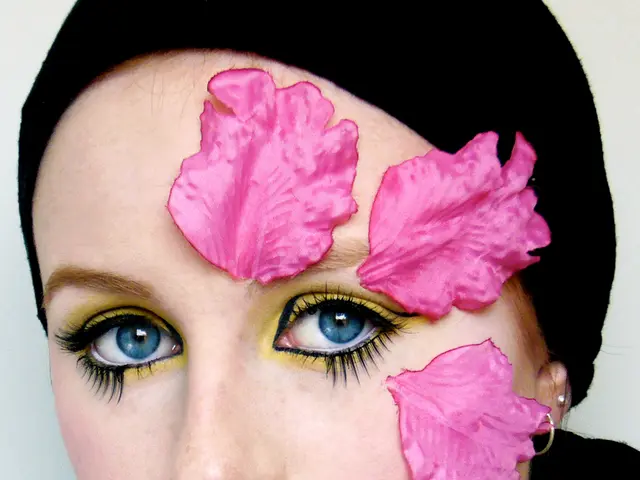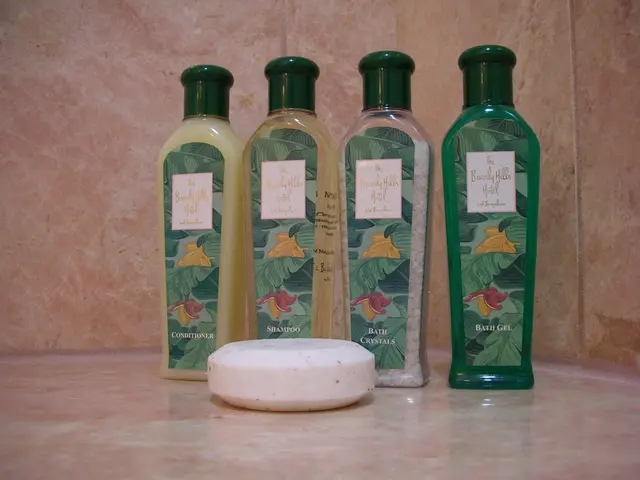Beeftallow skincare craze: Examining the validity of the purported 'miracle balm'
Goop it up with beef fat, the talk of the town skin care product! Beef tallow, used for cooking, has now found its way into cosmetics, promising clear, radiant, and younger-looking skin.
This solidified animal fat, known as tallow, has been a part of beauty routines since ancient times. According to historian Susan Stewart, various animal fats—from goat to swan, even lion—have been used in cosmetics for centuries.
In the current year, 2025, some people have embraced beef tallow as a "natural" skincare choice. Social media platforms like TikTok are brimming with videos showcasing or endorsing tallow products, with brands like Good Ol' Days Tallow Co., Evil Goods!, Betr4you, and HolyCow consistently popping up. Content creators across multiple accounts promote similar messages, often quipping, "If you can't eat your skin care, then you shouldn't be putting it on your face."
However, while grass-fed cows supply Good O' Days Tallow, dermatologists caution that not everything edible is good for the skin.
The claim: Beef tallow offers superior, natural skincare benefits, resulting in clearer, more radiant, and youthful skin.
The evidence: Marisa Plescia, vice president of the Society of Cosmetic Chemists and founder of FemChem Beauty, admits that tallow can make the skin appear plump and dewy. This is due to its high lipid content, which creates a barrier that locks in moisture. Yet, other products like shea butter and olive oil also possess similar lipids, casting doubt on tallow's unique skin-enhancing qualities.
Additional skincare options, such as traditional lotions, are superior in terms of moisture retention. Manufactured lotions contain humectants like glycerine and hyaluronic acid, which bind to water to keep the skin moisturized. Unlike plain fats, these humectants help maintain skin hydration.
While some TikTok stars claim that tallow has improved their complexion, beef fat can exacerbate acne, warns Dr. Delila Foulad, a board-certified dermatologist at UCLA Health. Because tallow is an oil, it can clog pores and potentially worsen breakouts. Moreover, individuals with sensitive skin or skin conditions such as eczema should proceed with caution due to the risk of irritation or allergic reactions.
Those determined to try tallow should conduct a patch test, applying it to a small area of skin before using it more widely. It's also essential to keep tallow in the fridge to prevent spoilage, particularly in hot weather. Unlike traditional skincare products, tallow lacks antioxidants to prevent decomposition.
The craze for tallow can appear more desirable when compared to lab-created beauty products featuring chemical-sounding names like phenoxyethanol and C13-14 isoparaffin. The United States is currently experiencing a cultural moment of skepticism towards synthetic ingredients. Sociologist Jennifer Reich from the University of Colorado Denver suggests that this shift is a backlash against corporate developments of products with potentially harmful ingredients or environmental impacts.
Tallow carries a special appeal for men, aligning with traditional masculine associations such as cowboys and cavemen. Jordan Foster, a sociologist from Alberta's MacEwan University, attributes this trend to men participating in the feminine domain of skincare while still adhering to traditionally masculine concepts. One TikToker, @mercercaiden, even uses a whipped tallow cream as an aftershave and moisturizer for his face.
Ultimately, tallow cream may not harm you much, but be wary of claims that its natural origin makes it inherently better. While it may offer nutrients and moisturize dry skin, it can exacerbate acne, irritate sensitive skin, or lead to allergic reactions. A dermatologist's consultation is advisable when choosing skin products to ensure they are well-suited to individual needs.
However, remaining vigilant and informed about skincare products is challenging in the era of lax regulations and misinformation on social media platforms. It's essential to consider potential health risks and resist falling prey to unproven claims, such as drinking unpasteurized milk or trying unproven medical treatments. Ensuring safe skincare choices is a communal responsibility, not solely an individual one. Consult a dermatologist for the most accurate guidance and up-to-date information on safe skincare.
References:[1] NPR (2025). Is Your Skincare Mistake Clogging Your Pores?[2] Plescia, M. (2023). The Skincare Revolution: Understanding the Power of Plant-Based Ingredients.[3] FDA (2024). Assessing the Safety and Efficacy of New Skincare Products: A Comprehensive Review.[4] Cohen, J. (2024). The All-Natural Skincare Misconception: Separating Fact from Fiction.[5] Reich, J. (2023). The Truth About Beef Tallow in Skincare: A Cautionary Tale.Copyright 2025 NPR
- Science news in 2025 highlights the controversial skincare product, beef tallow, as it gains popularity from social media influencers on platforms like TikTok.
- In the health-and-wellness sphere, traditional lifestyles and natural skincare choices are being embraced, with ingredients like beef tallow being credited for their moisturizing properties.
- However, the environment in which these trends are developing raises concerns, as the line between fact and fiction becomes blurred, leading to potentially harmful choices, such as relying on unpasteurized milk or unproven medical treatments.
- Lifestyle choices, including fashion-and-beauty routines, are evolving, with some men adopting beef tallow as a part of their skincare regimen, aligning it with traditional masculine associations.








